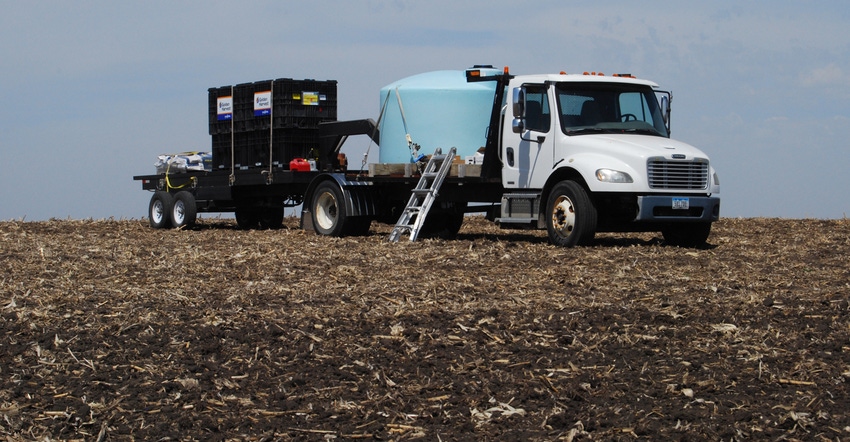May 13, 2019

The rules have changed for handling and mixing dicamba herbicide products. Only certified applicators can mix and handle new dicamba products.
According to a recent agreement between the Pesticide Bureau at the Iowa Department of Agriculture and Land Stewardship, and the Dicamba Work Group with the State Federal Insecticide Fungicide and Rodenticide Act Issues Research and Evaluation Group, only certified applicators can mix and handle the following dicamba products:
XtendiMax with VaporGrip Technology (Bayer)
Engenia (BASF)
FeXapan with VaporGrip Technology (Corteva)
Tavium plus VaporGrip Technology (Syngenta)
Anyone who is responsible for any part of the use and application process, which includes mixing, loading, application or cleaning of dicamba application equipment, must be a certified and licensed private pesticide applicator or a commercial pesticide applicator, and must attend a label-required dicamba training.
“Iowans certified in the Handlers category, and other mixing and loading employees cannot handle these products even if they attend the required dicamba training,” says Betsy Buffington, an Iowa State University Extension specialist in the pesticide safety education.
Paraquat users
The U.S. Environmental Protection Agency earlier this year announced mandatory certified applicator training for paraquat, a restricted-use pesticide for weed and grass control. Products that contain paraquat as an active ingredient may be sold under many different brand names, such as Gramoxone, Cyclone, Helmquat and Parazone. The active ingredient is also used in premix formulations with many other herbicides.
EPA says the new training requirement and other restrictions are aimed at reducing accidental ingestion and other exposures to the product, since a single sip can be fatal.
“Since the year 2000, a total of 17 deaths have resulted from accidental ingestion of paraquat,” says Kristine Schaefer, manager of the Pesticide Safety Education Program at ISU. “Many of these deaths were a consequence of people illegally transferring the pesticide to beverage containers, and the victim later mistaking it for a drink.”
Source: ISU is responsible for information provided and is wholly owned by the source. Informa Business Media and its subsidiaries aren’t responsible for any of the current content contained in this information asset.
You May Also Like




